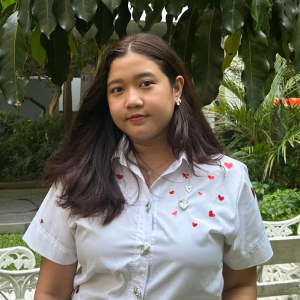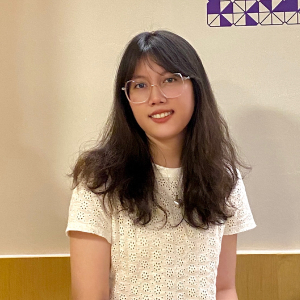Aquaculture and Aquatic Resources Management (AARM)
Master Degree

Free consultation for this program
We are ready to help you with your difficulties and processing.
Duration
Not provided yet
Study Format
Not provided yet
No. of Student Mentors
53
Total Tuition Fees
855,600 THB





Free consultation for this program
We are ready to help you with your difficulties and processing.
Duration
Not provided yet
Study Format
Not provided yet
No. of Student Mentors
53
Total Tuition Fees
855,600 THB





Program
Key information
University
Program structure
Tuition fees
Admissions
Possible Career Pathway
Student's testimonials
F&Qs
ABOUT THIS PROGRAM
AARM is committed to improving regional institutional capacity in aquaculture and aquatic resources management and related fields through innovative approaches that integrate education, research, and outreach activities on sustainable management of fisheries, and aquaculture.
Asia contributes over 90% of global aquaculture production and plays a key role in the development of appropriate cultural systems and technologies. Aquaculture production accounts for almost half of the world’s fish supply and increases by 10%. It is expected to surpass capture fisheries production in the next 10 years. Further development of aquaculture is also expected to help us move away from dependence on overexploited capture fisheries resources and to enhance and conserve aquatic habitats and biodiversity, but this expansion should not exceed the carrying capacity of water resources.
Wild aquatic resources are essential sources of nutrition for rural populations. Any degradation of these resources from over-fishing, use of illegal fishing gears, the introduction of exotic fish, misuse of chemicals, agro-industrial waste discharge, deforestation, breeding ground degradation and dam construction that can lead to blocking of migratory pathways will have dramatic impacts on the nutritional and health status of rural people.
Population growth, poverty, resource use conflicts, illegal activities, pollution, biodiversity conservation, policy, and institutional gaps, and conflicts are the major issues and problems in coastal management. A management approach that integrates sectors (government agencies, non-government organizations, community, etc.), disciplines (science, engineering, and management), land- and sea-based activities (agriculture, livestock, aquaculture, fisheries, tourism, etc.) is important to address the various issues and problems in the coastal area.
KEY INFORMATION
Degree
Not provided yet
Language
Not provided yet
Location
Pathum Thani
Start Date
06 August
Study Format
Not provided yet
Duration
Not provided yet
Program Highlight
Not Provided Yet
Total Semester
Not provided yet
Total Tuition Fees
855,600 THB In Total
Application deadline
Jul 2025
ABOUT UNIVERSITY

Asian Institute of Technology, 58 Moo 9, Km. 42, Paholyothin Highway, Klong Luang, Pathumthani 12120, Thailand, Khlong Nueng, Pathum Thani 12120 Thailand
Asia Ranking 2025
EduRank Ranking 0
Programs
87
Students
0
The Asian Institute of Technology (AIT) is an international English-speaking postgraduate institution, focusing on engineering, sustainability, and management studies. AIT’s rigorous academic, research, and experiential outreach programs prepare graduates for professional success and leadership roles in Asia and beyond.
Founded in 1959, AIT offers the opportunity to study at an institution in Asia which possesses a global reputation. Going forward, AIT will be stressing its global connections, injection of innovation into research and teaching, its relevance to industry, and its nurturing of entrepreneurship, while continuing to fulfill its social impact and capacity building role. Sitting on a beautiful green campus located just north of Bangkok, Thailand, AIT operates as a multicultural community where a cosmopolitan approach to living and learning is the rule. You will meet and study with people from all around the world.
Today, AIT’s internationally recognized engineering, environment, and management graduates are highly sought after by employers in their home countryand elsewhere. Across many walks of life in Asia, AIT alumni have distinguished themselves as CEO’s of private and state enterprises, as business owners, as well-respected researchers and faculty, and as senior university and government officials.
See more
PROGRAM STRUCTURE
COURSE STRUCTURE
Course Code Course Number of Credits Description/Course Objective Semester
ED71.04 Aquatic Seed Production 3
The objective of this course is to enable students to acquire a sound knowledge of the reproductive biology, breeding behaviour and larval development of the important cultivable finfish and shellfish in aquaculture. The course will familiarize them with specific hatchery techniques including broodstock management, larval rearing, feeding and nursery rearing protocols. The course also endeavours to provide skills necessary for hatchery managers through practicum and on-field training.
Aug Sem
ED71.36 Aquaculture Nutrition and Feed Technology 3
The objective of this course is to provide a thorough knowledge on the scientific principles of aquaculture nutrition and the application of that scientific knowledge (feed technology) to produce nutritious, water-stable, and aquatic-pollution-minimizing fish feeds. Students will also develop hands-on skills on formulating fish feeds, manufacturing techniques, feed storage, designing appropriate feeding systems, and conducting nutritional experimentation.
Aug Sem
ED71.52 Research Workshop 2
This course provides students with theoretical knowledge and practical skills to identify research problems in food production systems and to conceptualize research projects to resolve them. The students get familiar with various research planning approaches, proposal development tools, and writing and presentation of a research proposal and thesis/ dissertation.
Jan Sem
ED71.55 Statistics for Aquaculture and Fisheries Management 3
Research issues in aquaculture and fisheries are diverse which may range from conducting laboratory experiments under controlled environment to field surveys to collect data and analyze complex interactions of socio-economic and environmental factors. Students need in-depth knowledge and skill on both scientific experimentation and survey designs in order to generate or collect reliable data. After acquiring required data, they need both theoretical knowledge and practical competency in using relevant statistical tools. They also need skills on analyzing and interpreting both qualitative information and quantitative data to find solutions to the research problems. Therefore, this course provides theoretical knowledge to the students and helps them develop required skills to become experienced researchers.
Jan Sem
ED71.9021 Selected Topic: Applied Genetics in Aquaculture 3
The application of genetics and biotechnological tools to improve aquaculture production has advanced greatly over the past few decades. These include the characterization of wild genetic diversity and genetic improvement of cultured stocks. However, such applications are still lagging behind agriculture and livestock sectors as most of the cultured fish are still genetically similar to their wild counterparts. More emphasis on domestication of the stocks with high performance traits and adopting appropriate broodstock management strategies could help overcome the negative effects of inbreeding and unintentional selection. This course is aimed to provide students with the basic concepts of applied genetics and selective breeding with emphasis on sustainable management of fish stocks, and conservation of genetic resources for aquaculture.
Aug Sem
ED71.9022 Selected Topic: Cleaner Aquaculture Systems 3
Demand for fish as food is projected to increase manifold in the decades to come and so intensification of aquaculture production has been one of the major priorities worldwide. The primary goal is to boost outputs from aquaculture in tune with the increasing demand for fish as safe and nutritious food for a booming global population without compromising the environmental capacity to sustain production. The objective of this course is to provide students with knowledge on the emerging approaches that have potential to boost aquaculture outputs without compromising environmental sustainability, in our pursuit to produce cleaner, safe and nutritious food from aquatic environments.
Aug Sem
ED71.9023 Selected Topic: Sustainable Seafood and Nutrition Security 3
Rapidly increasing human population is creating food security problems. Over 2 billion people are suffering from one or more forms of malnutrition. Even where food might be adequate, without balanced food, people cannot be healthy. Poorer countries and communities are encountering malnutrition due to lack of food or inadequate macro nutrients such as energy and protein, and micronutrient deficiencies such as Vitamins A, D, and minerals e.g. Calcium, Iron, Zinc, etc.). At the same time, in rich countries and among rich people obesity is another problem caused by imbalanced diet. From health point of view, seafood or aquatic food is the best source of protein, which contains a good profile of essential amino acids. However, many people are not aware of this fact and seafood is still not consumed due to different taboos and traditional/cultural barriers. As a result, it has been difficult to reduce malnutrition in some countries.
Aug Sem
ED71.9024 Selected Topic: Sustainable Seafood Business 3
Seafood products are highly traded items in both the local and global markets. Seafood production, processing and trading have been highly commercial and globalized activities, which have resulted in a competition tougher than before. More recently, regulatory requirements are becoming stricter and often more complex. This course provides students with practical Seafood business management tools in the production, processing, quality control, and marketing of Seafood products in both the local and global markets to ensure the long-run sustainability of seafood production.
Jan Sem
ED71.9025 Selected Topic: Sustainable Seafood and SDGs 3
Rapidly increasing human population is creating food security problems. Over 2 billion people are suffering from one or more forms of malnutrition or hunger. Hunger is one of the most important goal amongst the UN’s 17 Sustainable Development Goals. Even where food production might be adequate, but accessibility, affordability and utilization can be the problems. Nutritionally balanced and safe diet is necessary for healthy life. Poorer countries and communities are encountering malnutrition due to lack of food or inadequate macro nutrients i.e. energy and protein, and micronutrients such as Vitamins A, D, and minerals e.g. Calcium, Iron, Zinc, etc. On the other hand, in rich countries and among rich people obesity is the main problem caused by imbalanced diets. From health point of view, seafood or aquatic food is the best source of protein, which contains a good profile of essential amino acids. However, many people are not aware of this fact and seafood is still not consumed and its potential has not been realized due to different taboos and traditional/cultural barriers. As a result, it has been difficult to reduce malnutrition in some countries.
Aug Sem
ED71.9026 Selected Topic: Aquaculture Health Management 3
Increasing intensity and output from aquaculture in response to the growing demand for fish as food also brings in a number of challenges, particularly concerned with diseases. Proper understanding of the pathogenic organisms and their effective control measures is essential to overcome the adverse impact of aquatic animal diseases on aquaculture production. This course is intended for students to understand the basic principles of aquatic health management, and to impart knowledge on preventive and remedial measures for maintaining healthy aquaculture stocks. The course will also introduce the concepts of biosecurity in farm management and the significance of quarantine measures that govern the transboundary movement of aquatic animals.
Aug Sem
ED71.xxxx Selected topic: Applied Microbiology and Biotechnology in Aquaculture 3
Microbiology and biotechnology are widely applied in modern aquaculture. This course is designed specifically for postgraduate students under the Aquaculture and Aquatic Resources Management (AARM) program, which aims to introduce the students to how microbiology and biotechnology can be applied in the field of aquaculture. The course also centers on recent advanced technologies in aquaculture and farm management. Besides lectures, laboratory sessions emphasize on demonstrations and practical experiences for students.
Jan Sem
Minor details: Please find the courses listed below, identified for being offered as ‘Minor’ in the AARM Academic Program.
Course code Course title Credit Semester
ED71.9021 Selected Topic: Applied Genetics in Aquaculture 3(30-45) August
ED71.36 Aquaculture Nutrition and Feed Technology 3(30-45) August
ED71.9024 Selected Topic: Sustainable Seafood Business 3(45-0) January
ED71.xxxx Selected Topic: Applied Microbiology and Biotechnology in Aquaculture 3(30-45) January
TUITION FEES
Tuition fees
855,600 THB / In Total
Application fees
800 THB
Application fee cannot be refunded.
Available Scholarships
Find scholarships suited to your goals. We’ll help you with the application process to secure the support you need.
ADMISSIONS PROCESS

Not provided yet
Possible Career Pathway
Not provided yet
STUDENT's TESTIMONIALS
No testimonials available just yet — stay tuned!
FAQs
Not provided yet